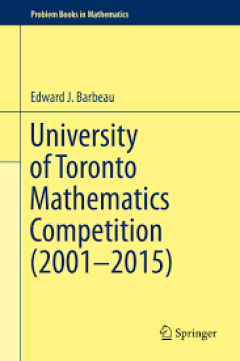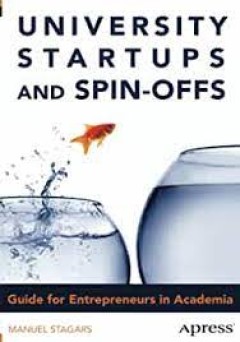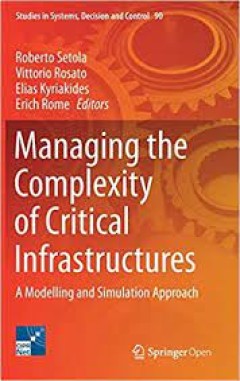Filter by

University of the World A Case for a World University System
In this book, Dieter Lenzen analyzes the world's three major educational systems: the Continental-European, the Atlantic (Anglo-American) and the East Asian. Distancing himself from the current trend towards the economically driven Anglo-American system of education, the author proposes an alternative model, "a university of the world". Contents: · Three concepts of the universit…
- Edition
- -
- ISBN/ISSN
- 978-3-319-13455-0
- Collation
- V, 52
- Series Title
- -
- Call Number
- -

Handbook of Ethics, Values, and Technological Design: Sources, Theory, Values…
This handbook enumerates every aspect of incorporating moral and societal values into technology design, reflects the fact that the latter has moved on from strict functionality to become sensitive to moral and social values such as sustainability and accountability. Aimed at a broad readership that includes ethicists, policy makers and designers themselves, it proffers a detailed survey of how…
- Edition
- -
- ISBN/ISSN
- 978-94-007-6969-4
- Collation
- XIII, 871
- Series Title
- -
- Call Number
- 330 HAN

Nursing Care at the End of Life : What Every Clinician Should Know
Nursing Care at the End of Life: What Every Clinician Should Know should be an essential component of basic educational preparation for the professional registered nurse student. Recent studies show that only one in four nurses feel confident in caring for dying patients and their families and less than 2% of overall content in nursing textbooks is related to end-of-life care, despite the treme…
- Edition
- -
- ISBN/ISSN
- 9781942341192
- Collation
- -
- Series Title
- -
- Call Number
- 610 LOW n

University of Toronto Mathematics Competition (2001–2015)
This text records the problems given for the first 15 annual undergraduate mathematics competitions, held in March each year since 2001 at the University of Toronto. Problems cover areas of single-variable differential and integral calculus, linear algebra, advanced algebra, analytic geometry, combinatorics, basic group theory, and number theory. The problems of the competitions are given in ch…
- Edition
- -
- ISBN/ISSN
- 978-3-319-28106-3
- Collation
- VIII, 207
- Series Title
- -
- Call Number
- -

Bioactive Sphingolipids in Cancer Biology and Therapy
This volume presents information on both the basic and clinical aspects of sphingolipid-metabolizing enzymes in various cancers. The volume also includes discussions of the innovative techniques and approaches for quantitative analysis and imaging that could significantly impact the general understanding of this topic, and the potential benefit of targeting sphingolipid enzymes to develop novel…
- Edition
- -
- ISBN/ISSN
- -
- Collation
- -
- Series Title
- -
- Call Number
- 616.99

University Startups and Spin-Offs Guide for Entrepreneurs in Academia
University Startups and Spin-Offs teaches university students, researchers, and educators the most effective strategies and tactics for launching their own startups from academic platforms with the backing of school programs, public grants, incubators, seed accelerators, and private partnerships in all parts of the world. Serial entrepreneur Manuel Stagars advises students, faculty, and rese…
- Edition
- -
- ISBN/ISSN
- 978-1-4842-0623-2
- Collation
- XIV, 248
- Series Title
- -
- Call Number
- -

Bioactive Lipid Mediators : Current Reviews and Protocols
This book summarizes the most recent progress in the studies of lipid mediators from the molecular to clinical level and introduces newly created tools for analysis including imaging mass spectrometry. Comprising 29 chapters divided into four major parts, the book describes the molecular natures of enzymes, transporters, and receptors for lipid mediators (Part I), the function of lipid mediator…
- Edition
- -
- ISBN/ISSN
- 978-4-431-55669-5
- Collation
- -
- Series Title
- -
- Call Number
- 611

Managing the Complexity of Critical Infrastructures : A Modelling and Simulat…
This book summarizes work being pursued in the context of the CIPRNet (Critical Infrastructure Preparedness and Resilience Research Network) research project, co-funded by the European Union under the Seventh Framework Programme (FP7). The project is intended to provide concrete and on-going support to the Critical Infrastructure Protection (CIP) research communities, enhancing their preparedne…
- Edition
- -
- ISBN/ISSN
- 978-3-319-51043-9
- Collation
- -
- Series Title
- -
- Call Number
- 624 MAN

University Governance in (Post-)Conflict Southern Sudan 2005–2011 The Nexu…
Few studies have looked into the governance of universities in societies affected by armed conflicts, because they are either meant for practitioners or focused on the role of universities for peace and development. Akiiki Babyesiza offers an in-depth analysis of the relationship between state, higher education, and society in a multicultural and multi-religious post-conflict setting and uses e…
- Edition
- -
- ISBN/ISSN
- 978-3-658-08145-4
- Collation
- 2 b/w illustrations
- Series Title
- -
- Call Number
- -

Universities, Rankings and the Dynamics of Global Higher Education Perspecti…
Global university rankings are now more than a decade old and this book uses the data they have produced to examine how the international landscape of universities has changed over the years. It offers new insights into the power and limits of league tables, a key element of globalized higher education that can be deplored but hardly ignored. Case studies from Asia, Europe and North America are…
- Edition
- -
- ISBN/ISSN
- 978-1-137-46999-1
- Collation
- 3 b/w illustrations
- Series Title
- -
- Call Number
- -
 Computer Science, Information & General Works
Computer Science, Information & General Works  Philosophy & Psychology
Philosophy & Psychology  Religion
Religion  Social Sciences
Social Sciences  Language
Language  Pure Science
Pure Science  Applied Sciences
Applied Sciences  Art & Recreation
Art & Recreation  Literature
Literature  History & Geography
History & Geography